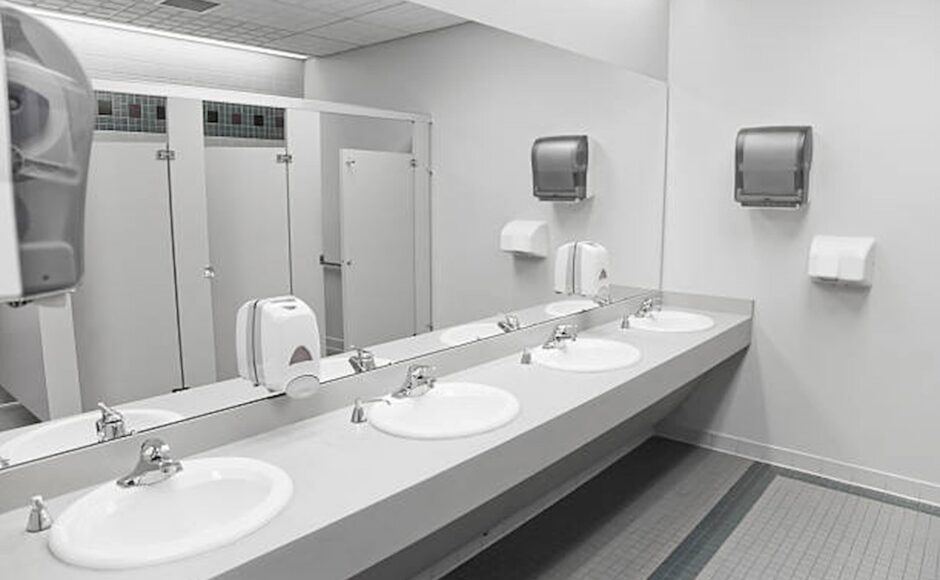By escaping to the restroom at work, Ally McBeal might be able to lower the insane levels of stress she is experiencing. Be that as it may, for the vast majority of us, public latrines are a piece unnerving.
In the event that you wriggle at the possibility of unpleasant microbes sneaking on latrine seats and fixture handles, you presumably invest as little energy as conceivable in the bathrooms of your place of business, also those in eateries, lodgings and (God deny!) petrol stations. Also, during those nerve-wracking minutes when you try to wander into the limits of the washroom, you might wind up pushing open the slow down entryway with your elbows, hunkering problematically over the latrine seat instead of allowing your skin to contact it, and flushing with your shoe visit-jammerbugten.com .
However, anxiety may be a little excessive, despite the fact that there is ample bathroom paranoia to go around. Yes, public restrooms can be a breeding ground for a wide variety of bugs, including well-known and less well-known pathogens like streptococcus, staphylococcus, E. coli, and shigella bacteria, the hepatitis A virus, the common cold virus, and a number of sexually transmitted diseases. Be that as it may, in the event that your resistant framework is solid, and in the event that you embrace straightforward sterile measures like handwashing, you ought to have the option to convey a killer blow to a large portion of what you experience and maybe put your “microorganism fear” to rest.
There’s no denying it: wherever you go in public restrooms, there could be a potpourri of germs. Many individuals consider latrine seats to be public foe No. chlamydia and gonorrhea are examples of organisms that thrive in this area. But before you freak out, infections rarely spread to humans through the toilet seat. In order for an infection to occur, the germs would need to be transferred from the toilet seat to your urethra or genital tract, or through a cut or sore on your buttocks or thighs, which is possible but highly unlikely. Many disease-causing organisms can only survive for a brief period of time on the surface of the seat.
As far as anyone is concerned, nobody has at any point gained a sexually transmitted disease on the latrine seat – – except if they were having intercourse on the latrine seat!” says Abigail Salyers, PhD, leader of the American Culture for Microbial science (ASM).
Like most viruses, common cold germs die quickly, making them less of a threat than you might think. Regardless of whether you come into contact with specific infections or microbes, you’d need to contract them in sums adequately huge to make you wiped out,” says Judy Daly, PhD, teacher of pathology at the College of Utah in Salt Lake City.
When the toilet is flushed, germs in the waste can be released into the air. As a result, Philip Tierno, MD, director of clinical microbiology and diagnostic immunology at Mt. Sinai Medical Center and New York University Medical Center, recommends leaving the stall immediately following flushing to prevent the microscopic airborne mist from choosing you as a landing site. According to him, “the greatest aerosol dispersal occurs after the majority of the water has already left the bowl, rather than during the initial moments of the flush.”
Sinks, faucet handles, and towel dispensers are additional hot spots in public restrooms. Picture somebody rising up out of a restroom slow down, and turning on the fixture with messy hands, and you’ll know why spigot handles are a possibly inconvenient surface. Learns at the College of Arizona in Tucson observed that sinks are the best supply of microbe states in bathrooms, thanks to a limited extent to collections of water that become favorable places for minuscule organic entities.
“Your own resistant framework is your most memorable line of safeguard against contracting illnesses in open bathrooms,” says Daly. In any case, hand washing is a vital assistant. However an overview that was important for ASM’s Spotless Hands Mission uncovered this scandalous little tidbit: Even though 95% of men and women say they wash their hands after using a public restroom, research shows that only 67% actually do so.
“Many individuals are indifferent about microorganisms since you can rush out of an air terminal restroom without cleaning up, and lightning won’t strike you,” says Salyers. ” So these individuals might believe that handwashing isn’t too significant.”
According to Tierno, the author of The Secret Life of Germs, “Even if you wash your hands, it might not be done correctly.” A few people move their hands rapidly under a progression of water for one moment or something like that, and they don’t utilize cleanser. That won’t be very helpful.”


